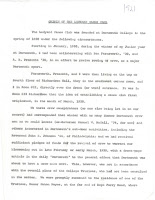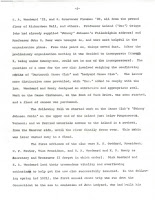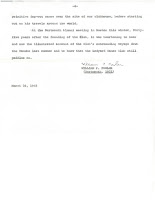 Almost a century ago, eight Dartmouth students created a small organization in the hopes of finally taking advantage of their proximity to the Connecticut River. With a $5,000 donation from Reverend John E, Johnson ’66, they built a modest boathouse down by the bridge and bought a few canoes. They chose to name their club after Dartmouth legend, John Ledyard, the famed explorer who, in his first year as a Dartmouth student, decided the academic life wasn’t for him, felled a pine tree, carved out a canoe and set off down the Connecticut towards the sea. During the spring of 1921, a year after they created the club the founders set off in their canoes to retrace the paddle of their namesake.
Almost a century ago, eight Dartmouth students created a small organization in the hopes of finally taking advantage of their proximity to the Connecticut River. With a $5,000 donation from Reverend John E, Johnson ’66, they built a modest boathouse down by the bridge and bought a few canoes. They chose to name their club after Dartmouth legend, John Ledyard, the famed explorer who, in his first year as a Dartmouth student, decided the academic life wasn’t for him, felled a pine tree, carved out a canoe and set off down the Connecticut towards the sea. During the spring of 1921, a year after they created the club the founders set off in their canoes to retrace the paddle of their namesake.
Today, Ledyard Canoe Club is a thriving campus community, of which I feel extremely lucky to be a member. We have carried on in the tradition of our founders, setting our canoes in the Connecticut each year to paddle to the sea, and we have also expanded on that tradition. Throughout the history of the club, Ledyardites have paddled internationally, in such places as Japan, Korea, and Ecuador, as well as domestically down the Rio Grande, the Mississippi, to Lake Powell and in the Florida Everglades. Ledyardites have competed in World Championships and at the Olympics. To fully detail each exciting trip taken by a Ledyardite would take far more than a single blog post and through the course of my research I am continually awed by the depth of experience this club has had.
More and more, throughout my research I have found myself being drawn into Ledyard’s history and connecting with the club and past Ledyardites in ways I did not expect. While Ledyard has changed, expanded and improved throughout the years, the elements I admire so much in the community it is today--our adventurous spirit, support for one another, and love of the club--I see reflected over and over, reaching straight back to our beginning. Longtime Ledyard advisor and whitewater coach, Jay Evans ’49, understands perfectly, saying in a letter sent 18 years ago, “Ledyard has a sense of place. It is a setting, a land and waterscape, a cast of mind perhaps, a legacy for sure, passed on from one generation to another.”
This spring, we will be celebrating that legacy with the Ledyard Explorer’s Symposium. In April, just a week before our official anniversary, various alums and current students will present on our namesake, the club’s history and the future of the club. My research in Rauner this term is devoted to curating an exhibition which will complement the Symposium and make our history more accessible to the Dartmouth Community. I hope to introduce students to Ledyard’s rich history and lasting spirit of exploration.
I highly doubt that our founders would be surprised by Ledyard’s enduring vibrancy. After all, our first president, Professor Richard Goddard ’20, became the club’s advisor for thirty years and stayed in communication with Ledyard throughout his life, like many Ledyard alums. I expect myself, and many of the current Ledyardites I know, will be carrying on that tradition, just as each year Ledyardites set our canoes in the Connecticut and head on down to the sea.
Posted for Jaime Eeg '18, recipient of a Rauner Student Research Fellowship for the 2018 Winter term. The Rauner Student Research Fellowships provide full funding for a Dartmouth student to conduct research with primary sources during an off-term on a topic of their choosing. For more information, visit the fellowship's website.






